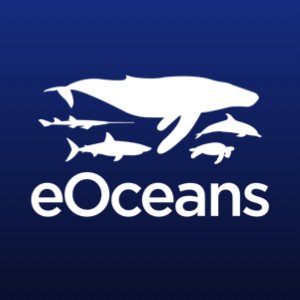
Dr. Christine Ward-Paige Coauthors First Guide to Responsible Shark & Ray Tourism
March 2020 – Halifax, Canada
eOceans Founder Dr. Christine Ward-Paige, Coauthors First-ever Guide to Responsible Shark and Ray Tourism — Role of Citizen Science
In a significant stride towards sustainable tourism, Dr. Christine Ward-Paige, lead scientist at eShark, eManta, and founder of eOceans, has played a pivotal role in authoring the section on citizen science in the world's first-ever Responsible Shark and Ray Tourism Guide. The groundbreaking guide, titled "Responsible Shark and Ray Tourism: A Guide to Best Practice," is a collaborative effort by Project AWARE®, WWF, and The Manta Trust, released this World Wildlife Day.
Sharks and rays face a growing threat of extinction due to unsustainable exploitation, primarily driven by overfishing. With up to 273 million sharks being killed each year, many shark and ray species have been severely depleted, emphasizing the need for responsible tourism practices that include education, outreach, and inclusion in shark and ray monitoring. Recognizing the potential of shark and ray-focused ecotourism as a conservation strategy, the guide aims to provide practical, science-based guidance to tourism operators, NGOs, and local communities to develop and maintain well-managed tourism operations that contribute to species conservation and benefit local economies.
Dr. Andy Cornish of WWF emphasizes, "Shark and ray focused ecotourism has great potential as a conservation strategy. If properly designed and managed, it can provide alternative direct and indirect economic benefits to local communities and economies. Yet sadly there’s limited practical guidance out there."
Dr. Christine Ward-Paige, renowned leader of many shark and ray citizen science projects — including the Great Fiji Shark Count, eManta, Shark Sanctuary Evaluation, eShark Thailand, etc. — and founder of eOceans, has authored the section on citizen science in the guide. Her expertise contributes to bridging the gap between scientific research and tourism operations, ensuring that best practices incorporate the latest advancements in marine conservation and ethical participatory science.
Isabel Ender of The Manta Trust explains, "Lack of best practice guidance can often leave operators confused about how to assess the impact and improve the sustainability of their operation. We sought advice from scientists and the industry to help bridge that gap and deliver a best practice guide – the first of its kind in the world."
For media inquiries or further information about the paper, please contact:
Dr. Christine Ward-Paige, CEO
eOceans
www.eOceans.co
chris@eOceans.co
